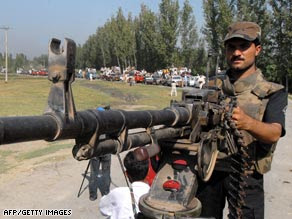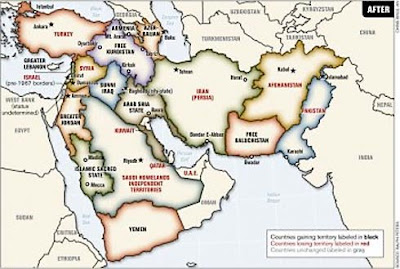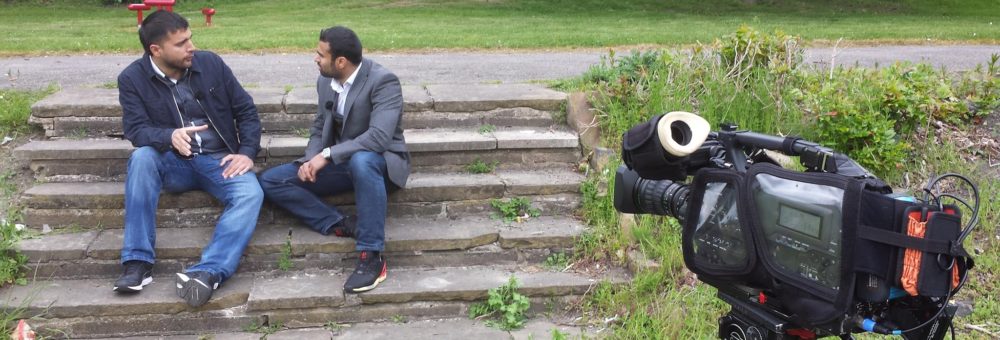
Pakistan’s tumultuous relationship with the West has put the country at the forefront of the so called War on Terror.With violence flaring in the North West Frontier province and the recent attacks on the Sri Lankan cricket team in Lahore, many analysts are predicting Pakistan’s future as a failed state.
Since former President Musharraf signed up to America’s so called “War on Terror” the country has been spiralling out of control.The violence in Afghanistan has spread south of the border into Pakistan.The Pakistani military, once respected and admired by Pakistanis, is now engaged in a war against its own citizens, that has resulted in large civilian casualties and thousands of internally displaced refugees from the Bajour Agency ,in the North West Frontier Province, and neighbouring regions.
When the Soviet Union invaded Afghanistan in 1979 thousands of students from religious schools in and around Pakistan and Afghanistan were encouraged to take part in ‘jihad’ against the Russian occupation.These mujahedeen fighters were trained and financed by both the Americans and the Pakistani military to fight off a common enemy.After the withdrawal of the Russian troops however the mujahedeen fighters turned on each other, and a bloody civil war ended with the Taliban taking control of Afghanistan.
Let us think outside the paradigm of the so called war on terror, outside the common narrative that we have just read above. What is really taking place?
War on Terror
The so-called “Pakistani Taliban” have been mounting attacks not only against the Pakistani military but also against ordinary people living in the region.If you ask people in Pakistan including in the provincial capital of the North West Frontier Province, Peshawer, people tell you “these militants are not Taliban”.There is the belief in Pakistan that the so called Pakistani Taliban have no links to the Taliban in Afghanistan. This is in fact supported by a statement from the Afghan Taliban that the so called Pakistani Taliban have nothing to do with them.The ‘militants’ in Pakistan seem to be jumping on the Taliban brand name to gain both religious and political legtimacy.They are well funded, well equipped and trained well enough to battle the Pakistani army.
Possible Balkanisation?

Far fetched? Well not if you consider the strategic location of Pakistan in the light of American and Chinese interests.China has recently signed a deal to develop the port of Gawadar in Baluchistan; this will be the largest Chinese construction investment outside of China.Chinese access to the Indian Ocean is making both India and the United States uneasy.While America does not want China anywhere near the Straits of Hormuz.India has had a continuous military rivalry with Pakistan, and the presence of China, a close military ally of Pakistan, could be seen as a potential threat to India.
Pakistani Government
The Pakistani government, currently led by the Pakistan Peoples Party, has lurched from one embarrassing incident to another after the end of President Musharraf’s rule in 2008.Apparent splits in the government began to emerge after the attacks in Mumbai in November 2008, with conflicting reports being given regarding the nationality of one of the alleged terrorists.This culminated in the sacking of the National Security Advisor, Mahmud Ali Durrani, by Prime Minister Yousaf Raza Gilani.
However the biggest embarrassment to Pakistan and its people was when the Hilal-i-Quaid-I-Azam was conferred on Richard Boucher, US assistant secretary of State for central and South Asian affairs, by President Asif Ali Zardari for his ‘services to Pakistan’.Zardari has shown he is reluctant to break with the same governments that had favoured Musharraf.He has ignored the will of the Pakistani people and their anger at the war in Afghanistan and the consequences it has for Pakistan.US drone attacks and US troops carrying out operations on Pakistani soil which have resulted in huge civilian casualties have been met not with protest, but with the awarding of Pakistan’s highest civilian award to Boucher. The award was met with shock and criticism by politicians and media alike.
The latest crisis to grip Pakistan’s beleaguered government has just ended in a significant climbdown for President Asif Ali Zardari.The crisis began when the Supreme Court barred opposition leader, Nawaz Sharif, and his brother, Shahbaz, from elected office. The government of Pakistan’s most populous state, Punjab, led by Shabaz was duly dismissed.Sharif then threw his weight into the lawyers’ movement that has been active for the past two years following the sacking of the Chief Justice, Iftikhar Mohammed Chaudhry.Despite a government clampdown on protestors and attempts to place Sharif under house arrest, the protest gathered strength and thousands of supporters, determined to take their grievances to Islamabad.Zardari’s crackdown even went as far as to shut down independent news channels, which lead to the resignation of the Information Minister, Sherry Rehman.In the face of this Zardari was forced to step down, and to reinstate Chaudhry and other judges sacked by Musharraf.He was also forced to order the release of the political activists who have been arrested over the past week.People have been drawing parallels with Musharraf’s rule and have taken to the streets to demand change, and in doing so, they have shaken Zardari’s government.
Regardless of the incompetence and corruption of the government and the emerging threat from ‘militants’ and any future American plans for Pakistan,the Pakistani people seem to be holding together.On the streets of Pakistan, from Lahore to Islamabad, from Karachi to Peshawar, people seem to be in a defiant mood, and have no appetite for a fragmented nation.
On the busy streets of Peshawar lies a memorial for those that fought the British in the early 20th century.The same people will fight any occupier or any one that wills Pakistan harm.The Pakistani people are strong and will fight intellectually, verbally and if need be physically to defend their country against any oppressor.However, Pakistan’s biggest threat may come from within.
